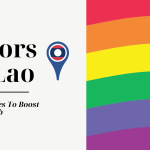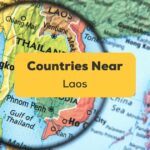Hong Kong – the bustling, cosmopolitan city known for its stunning skyline, delectable food, and rich cultural heritage. But did you know that this city is also home to a multitude of languages? Yes, you read that right!
From Cantonese to English, Mandarin, and various dialects of Chinese, Hong Kong is a melting pot of languages.
Today, we’ll take a closer look at the languages spoken in Hong Kong and explore their historical significance.
We’ll also discuss the challenges and advantages of linguistic diversity in this vibrant city. Let’s get started.
Historical Background
A Shifting Linguistic Landscape
Hong Kong’s linguistic landscape is as diverse as its rich and complex history, with political and cultural forces shaping the city’s language policies and practices.
Hong Kong was once predominantly an English-speaking territory as a former British colony. But with the handover of Hong Kong to China in 1997, the city’s linguistic landscape underwent a significant shift.
Recognition Of Linguistic Diversity
Under the Hong Kong Basic Law, which serves as Hong Kong’s mini-constitution, Chinese and English were designated official languages, recognizing the importance of linguistic diversity.
Cantonese, a southern Chinese dialect, remains the most commonly spoken language in Hong Kong. At the same time, Mandarin has also gained popularity in recent years.
Debates And Controversies
Despite this official recognition of linguistic diversity, ongoing debates and controversies have existed over language policy and using Chinese characters in Hong Kong.
Some argue that the use of simplified characters, which are used in mainland China, undermines Hong Kong’s cultural heritage and identity.
Others advocate using simplified and traditional Chinese characters to bridge the gap between Hong Kong and mainland China.
Reflection Of Demographic Diversity And Complex History
The evolution of Hong Kong’s language policies and practices reflects the city’s demographic diversity and complex history.
As a vibrant metropolis with a unique cultural identity, Hong Kong continues to embrace linguistic diversity and find ways to bridge the gap between its cultural heritage and its place in the modern world.

Official Languages Of Hong Kong
Cantonese and English are the two main Hong Kong languages, with Cantonese being the most common.
Cantonese (96%)
Cantonese is a southern Chinese dialect spoken by most people in Hong Kong. It has a unique tonal system, and complex grammar sets it apart from other Chinese dialects.
Cantonese is an integral part of Hong Kong’s identity and cultural heritage. It is the language of choice for daily communication and is often used in movies, television shows, and Cantonese music.
The Importance Of Cantonese In Hong Kong
Cantonese plays a significant role in Hong Kong’s social and cultural landscape. It is an essential means of communication for locals and is deeply ingrained in their daily lives.
Cantonese is also a symbol of Hong Kong’s cultural identity and a source of pride for many Hong Kong people.
Despite the growing popularity of Mandarin in recent years, the Cantonese dialect remains the dominant language in Hong Kong and is likely to continue to be so in the foreseeable future.
Cantonese As A Chinese Dialect
Cantonese is a rich and expressive language that has evolved over the centuries. It is not only spoken in Hong Kong but also in Guangdong province, Macau, and many other regions.
It is also known for its unique intonation and rhythm, making it a challenge for non-native speakers to master.
It is often used in Chinese operas and dramas, which have gained popularity in the global entertainment industry.

English (46%)
English has a long and complicated history in Hong Kong. As a former British colony, English was once the dominant language of administration, education, and business.
It was a necessary means of communication for Hong Kong to participate in the global economy. Even after the handover of Hong Kong to China in 1997, English remained a critical language in the city.
Importance Of English In Hong Kong
English is still widely used in Hong Kong, especially in business and education. Many Hong Kong people are bilingual in English and Cantonese, and some are even trilingual, adding Mandarin to the mix.
English proficiency is highly valued in Hong Kong, and many English language schools and language centers cater to students of all ages.
English is also a popular language choice for international trade, making it an essential tool for Hong Kong’s economic development.
Other Languages Spoken In Hong Kong
While Cantonese and English are the two official languages, many other languages are spoken by different ethnic groups and communities in Hong Kong island.
Mandarin (48%)
Mandarin, also known as Putonghua, is a standardized form of the Chinese language and one of the official languages of the People’s Republic of China. It is also one of the most widely spoken languages in the world, with over a billion speakers.
In Hong Kong, Mandarin has become increasingly important due to the growing presence of mainland Chinese visitors and immigrants.
As Mandarin is the official language of China, it is often used in official settings, such as government offices and business meetings.
Additionally, many schools in Hong Kong offer Mandarin classes. With this, more people have been pushed to learn the language to better communicate with mainland Chinese counterparts.
With the rising influence of China in the global economy, knowing Mandarin has become an essential skill for those who wish to do business or work in China.

South Asian Languages (2.5%)
Hong Kong is also home to a significant South Asian population, particularly from India and Pakistan.
As a result, languages such as Hindi, Urdu, and Punjabi are commonly spoken in some city regions.
The prevalence of South Asian languages spoken in Hong Kong can also be seen in the many Indian and Pakistani restaurants and shops throughout the city.
Filipino (1.9%)
Another prominent community in Hong Kong is the Filipino community, who often work as domestic helpers in Hong Kong households.
Because of this, Tagalog, the national language of the Philippines, is commonly spoken in many households throughout the city.
Hong Kong also has many Filipino shops, restaurants, and cultural organizations, making it a hub for the Filipino community in Asia.
Other Chinese Dialects (3.3%)
Hong Kong’s linguistic diversity doesn’t stop at the languages mentioned above. In fact, the city is home to several other Chinese dialects, including Hakka (3.1%), Teochew (0.2%), and Hokkien (0.3%).
These dialects are often associated with older generations who have immigrated to Hong Kong from different regions in China, adding to the city’s cultural richness.
However, as Hong Kong continues to evolve and modernize, these dialects have become less common, especially among younger generations who may prefer Cantonese or Mandarin.
Despite this, efforts are being made to preserve and promote these dialects, including establishing cultural organizations and language classes.

Challenges Of Language Diversity In Hong Kong
Communication can be a major issue in a city where people speak different languages and dialects.
Although most Cantonese speakers are fluent in English, many still struggle with communicating in these languages, let alone the other languages spoken in the city.
Communication Challenges
Language barriers can make it difficult for people to express themselves or understand others, especially in work or medical emergencies.
For example, a non-Cantonese-speaking patient may have difficulty communicating their symptoms to a Cantonese-speaking doctor, which could lead to a misdiagnosis or improper treatment.
Code Switching
Another challenge of language diversity in Hong Kong is code-switching. This refers to switching between two or more languages or dialects within the same conversation.
Code-switching is common in multilingual communities like Hong Kong, where people may speak different languages at home and at work.
While it may seem like a simple solution, code-switching can be mentally taxing and requires a high level of linguistic skill.

Language Learning In Hong Kong
Learning a new language can be an exciting but challenging experience, and Hong Kong offers many opportunities to do just that. Here are some things to know about language learning in Hong Kong.
Schools And Language Learning Resources
Hong Kong has a robust education system, with numerous schools and universities offering language courses for students of all ages.
Many schools offer English language classes as part of their curriculum. In contrast, others offer Mandarin, Cantonese, and other language classes.
Also, private language schools and tutors are available for those who want to learn a language outside of a formal educational setting.
Other Language Learning Resources
One popular option is language exchange programs. These allow individuals to practice their language skills with native speakers casually.
They offer language practice and cultural exchange opportunities, allowing participants to better understand the language and its context.
For those who prefer more independent study, online resources such as language learning apps and websites offer convenient and accessible language learning options.
Many of these resources provide interactive exercises, quizzes, and video lessons to help users improve their language skills at their own pace.
Useful Cantonese Phrases
If you’re planning to visit Hong Kong or are interested in learning Cantonese, having a few useful phrases up your sleeve can be a great help. Here are some commonly used conversational Cantonese phrases that might come in handy.
| English | Cantonese | Pronunciation |
| Hello | 哈囉 | haa1 lo1 |
| Thank you | 多謝 | do1 ze6 |
| Excuse me | 唔該 | m4 goi1 |
| Sorry | 對唔住 | deoi3 m4 zyu6 |
| Yes | 係 | hai6 |
| No | 唔係 | m4 hai6 |
| Goodbye | 再見 | zoi3 gin3 |
| How are you? | 你好嗎? | nei5 hou2 maa3? |
| I don’t understand | 唔明 | m4 ming4 |
| What is your name? | 你叫咩名? | nei5 giu3 me1 ming4? |
Learn Languages Spoken In Hong Kong With Ling

As you can see, Hong Kong’s unique linguistic landscape is a testament to its rich cultural history and identity. With the diversity of languages spoken in Hong Kong, it’s no surprise that language learning is highly valued in the city.
And that’s where the Ling app comes in! Ling app offers over 60 languages with thousands of lessons designed by language experts to help you achieve your language goals in record time.
From Cantonese to English, Mandarin, and beyond, its comprehensive features, including lessons, dialogues, grammar tips, games, and blogs, make learning fun and easy.
Start learning new languages today by downloading the Ling app on Google Play or App Store!























